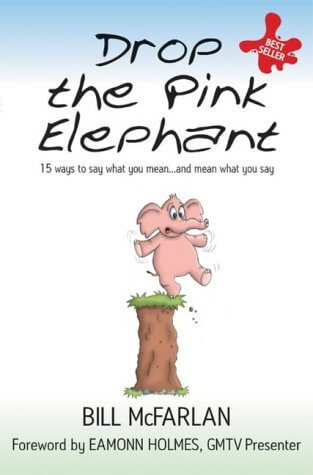
If I say to you “Don’t think about the Pink Elephant!”, what are you thinking about? Yes, the Pink Elephant.
It is November 2004. I had just finished speaking to five hundred tourism industry professionals at a national tourism conference in Scotland and I had overrun my allotted time and had to make the cardinal error of flying through my last few slides as I was being given the “yank” signal by the organisers.
This conference was on the theme: “Scottish Tourism, Confident and World Class” and I had been SO excited to be asked to be one of the two keynote speakers. As a Scot who had built a career in tourism internationally, I was full (overfull!) of ideas to share to seek to inspire the industry in the country of my birth.
Unfortunately, despite lots of time preparing for the event, that passion saw my (then) relative lack of experience in public speaking show up in way too many stories and ad-libs thrown in, leading to my talk going over the allotted time and losing form towards the end.
At the next break, gently and kindly, the conference host, Bill McFarlan, handed me a copy of his book, “Drop the Pink Elephant“.
Within the book are “21 steps to communication heaven”, many of which I have both learned from and taught to others, so thank you Bill and know that your shared learnings have been passed on to many people.
Oh, and the title? If I say to you “Don’t think about the Pink Elephant!”, what are you thinking about? Yes, the Pink Elephant. A key learning is that the subconscious brain cannot process negation. In short, be very careful with your language, avoid negation wherever you can in your communication.
One other bonus thought. Also avoid using the word “but”, as using “but” in a sentence has the impact of (in the mind of the person listening to you) negating everything that came before it. As an alternative, you can use “however” or “yet”. One step beyond, though, is to use the word “and” rather than “but”.
I encourage you to pay attention to these two tips and yes, I do recommend Bill’s book, the learnings are evergreen.
